Search
Did you mean: Temple of Artemis at Ephesus?
Remove Ads
Advertisement
Summary 
Loading AI-generated summary based on World History Encyclopedia articles ...
Search Results
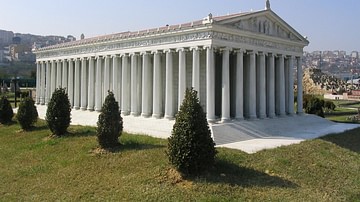
Definition
Temple of Artemis at Ephesus
The Temple of Artemis at Ephesus was located on the western coast of Asia Minor (modern Turkey) and built in the 6th century BCE. Such was its tremendous size, double the dimensions of other Greek temples including the Parthenon, that it...
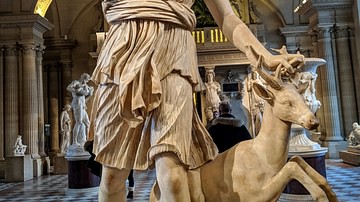
Definition
Artemis
Artemis was the Greek goddess of hunting, wild nature, and chastity. Daughter of Zeus and sister of Apollo, Artemis was a patron of girls and young women, and a protectress during childbirth. Artemis was widely worshipped but her most famous...
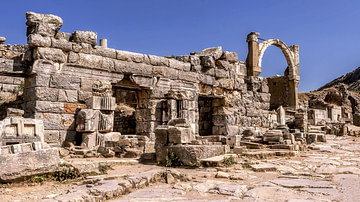
Definition
Ephesus
According legend, Ephesus (also Ephesos) was founded by the tribe of the Amazons, great female warriors. The name of the city is thought to have been derived from "Apasas", the name of a city in the "Kingdom of Arzawa" meaning the "city of...
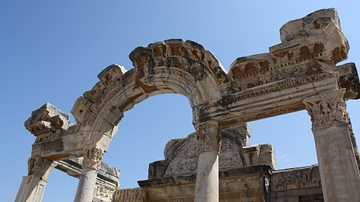
Image
Temple of Hadrian, Ephesos
A detail of the temple dedicated to the Roman Emperor Hadrian, Ephesos (2nd century CE). The temple consisted of an outer porch - with four frontal columns, triangular pediment and arch - and an inner cella.
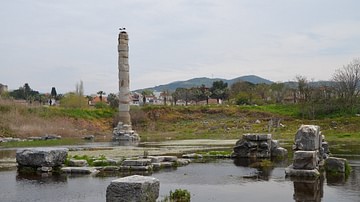
Image
Temple of Artemis, Ephesus
The lonely reconstructed column standing on the site of the Temple of Artemis at Ephesus. The Temple of Artemis, also known as the Artemesium, was constructed in the mid 6th century BCE and was considered to be one of the Seven Wonders of...
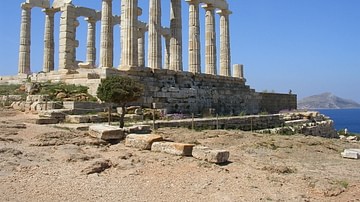
Definition
Temple
A temple (from the Latin templum) is a structure usually built for the purpose of, and always dedicated to, religious or spiritual activities including prayer, meditation, sacrifice and worship. The templum was a sacred precinct defined by...

Image
Heraclitus of Ephesos
Heraclitus of Ephesos, painting from the 17th century by Johannes Moreelse.
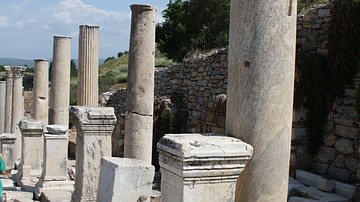
Image
Curetes Street, Ephesos
Leading from the Heracles Gate to the Celsus Library, Curetes street (named after the priest class of Ephesos) was lined with colonnaded galleries, various temples, store rooms and houses, and statues of the city's benefactors (of which the...

Image
Model of the Temple of Artemis
Model of the Temple of Artemis, Miniature Park, Istanbul, Turkey.
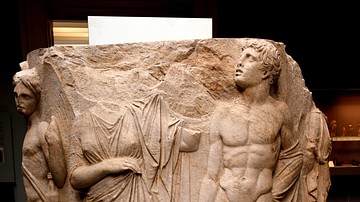
Image
Column Drum from the Temple of Artemis, Ephesus
This is the best preserved of the column drums carved in relief. It shows a youthful winged Thanatos (death), a draped woman, a figure of Hermes Psychopompos (leader of souls to the underworld), a standing woman and a seated man identified...